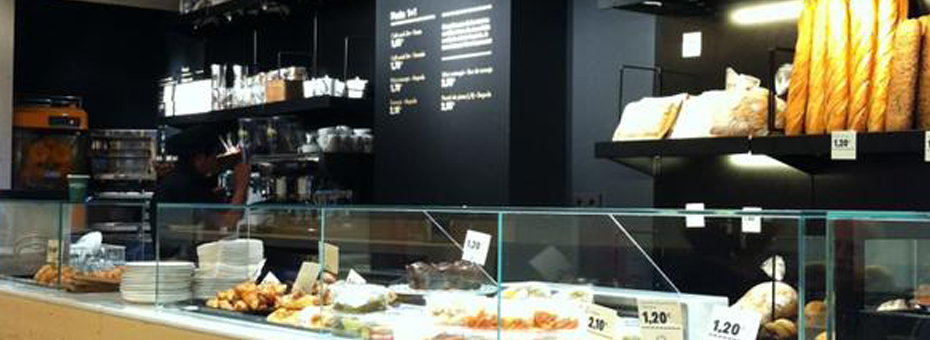The lean journey of Barcelona-based bakery cafe chain 365 began in 2005. Twelve years later, the organization has expanded over tenfold. Their journey is outlined in the new LEI book, The Lean Bakery, by 365 founders Juan Antonion Tena and Emi Castro. In their first interview with The Lean Post, Leo and Agus Tena, children of the authors, describe some of the finer aspects of the transformation of 365.
Q: Did you have to change as a leader when you introduced a lean management system?
Yes, of course. When starting with the lean system as a way of working, the first person to learn and set an example has to be you, the leader. You must rethink the “why” behind everything you do and be the one who inspires the change. We all need a time to unlearn and learn, and as a leader you have a duty to respect the learning time of your team.
Q: What are the most important lessons, based on your experience, that other entrepreneurs should know about lean management?
Do not take anything for granted. It is necessary to look at situations naively and ask “why” without conditioning the response, researching instead of judging. Do not think that your judgment is the absolute truth.
Always go down to the gemba. There you learn a lot from the people who are in the process. They have much to contribute to the improvement. Sometimes we think that we, as managers, are the ones who have to think. And that is not so – our job is to provide people with the environment and tools they need in order to propose ideas.
And there’s the importance of standards. Maintaining the same way of doing things is extremely important. If we do not standardize we will always have variability and that is the greatest enemy. Although the most important part (always) is not the application of the process, but being constant in its application and monitoring.
Q: In the book, your parents write that “customer expectations and the culture around food are changing…” What does that mean? What’s changing?
The more traditional customer is giving way to new profiles of customers, more aware of the environment, with special nutritional requirements, impatient and with very high expectations. Everything is changing and at a very fast pace. Customers are accustomed to immediacy but do not want to give up quality. Currently the business of bakeries in Spain is proliferating a lot and the great supply of the market hinders customer loyalty. Giving a satisfactory experience to the customer is mandatory, but if you want to differentiate you need to offer a complete quality experience in every way, both in product and personal treatment so that they want to visit us again, every day.
Q: What are the advantages and challenges in operating the new lean shop that 365 has introduced, which makes and bakes bread from scratch instead of getting it from a central kitchen?
The most important advantage is quality. We are getting a product of the highest quality thanks to the long fermentation of the product and to very robust work processes. The customer satisfaction is another benefit. The customer can see how the product is made live and verify that the product is completely handmade. We are transparent for our clients and we show the manufacture of all the products that they consume through a workman fully in sight. Children are stunned to see how a croissant is made. It’s a lot of fun!
Logistics has also improved since we do not have to transport “air” in our trucks. If the product is manufactured in the store, we only have to deliver flours and yeasts to them. The store can handle adding water and the fermentation process.
The fact that this is a standalone store (they make their own products) is helping us solve a challenge. In the past the shops depended 100 percent on deliveries from the factory, so the shipping distance was a complicated point and slowed the expansion. Now, with this system the store produces products in-house, and is not limited by product delivery times or distance.
Q: I don’t work in baking or retail. What can I learn by reading The Lean Bakery?
You can see an example of innovation by observing the application of lean in the production of our products and the operation of our stores. Often it is applying common sense. In the end, no matter what sector you are in there are simple guidelines that we have applied that you can learn and even transfer to your business. In this book you can also see an example of how to improve and simplify a process with a lot of variability and hand time. This is valid for any sector; if we have applied lean in a chain of bakeries, where can it not be applied?
Q: Why did you hope to accomplish in publishing the book?
I am very convinced that the best way to learn is to share. We learned a lot from visiting other companies and they helped us to be what we are. If, with our example, we can help other companies to get in the way of improvement, we will be delighted. In addition, this gives us the opportunity to continue sharing and learning.
Q: What made you think that lean principles, originally meant for auto manufacturing, would work in a bakery?
Processes. The first time I read about lean was in a novel called “Starting Over.” That novel seemed to speak about my company and I identified with the examples that it referred to. From that moment I started looking for other books that talked about lean, and since no one ever told me that that could only be used in automotive, I started to interpret everything I read from the point of view of the bakery and…it worked! Small experiments with great results.
Q: Many of the small, individual improvements that you write about in your book (simplifying the pastry-filling device, the shopping-cart system, changing your supplier-delivery times to later in the day) had huge positive impacts. Which small improvement do you think was the most beneficial to 365?
Think only of tomorrow. When we started to think about producing only the amount of product needed for the next day, everything started to work. If it was not for tomorrow we did not make it – because we didn’t need it. If I had a machine that only manufactured large batches of more than one day’s supply of product, we did not want it. What started as an experiment, making only a day’s worth of product, has become a way of understanding the business. You learn a lot about your variability when times are so short: you learn the importance of low stock levels, small batches, the benefit of delivering every day to the store… and it takes away excuses! That change of mentality was the beginning of what we are now.





